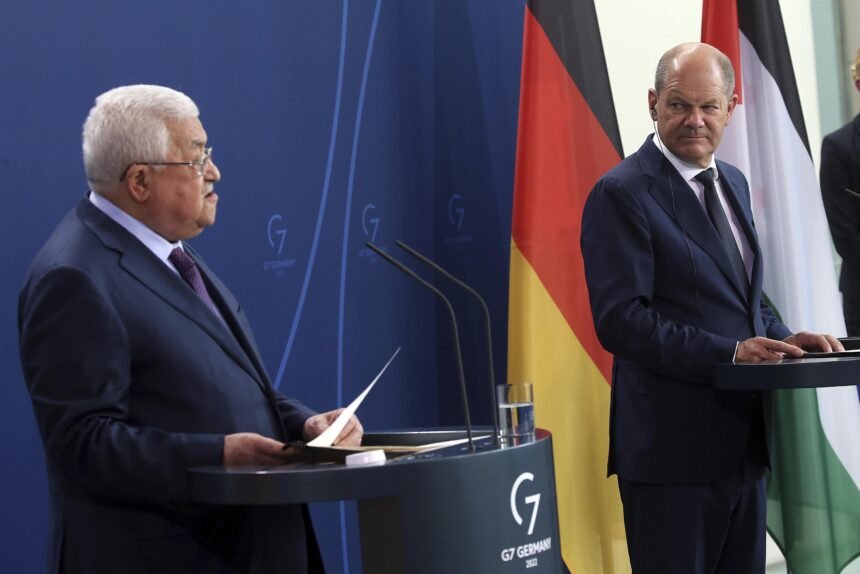Berlin prosecutors announced that Palestinian President Mahmud Abbas’s remarks on the Holocaust during a visit last year are deemed as inciting racial hatred. However, due to Abbas’s diplomatic immunity, no criminal case will be pursued.
The controversy unfolded during a joint press conference in August 2022, where Abbas, standing alongside German Chancellor Olaf Scholz, faced accusations of “relativizing the Holocaust.” The Palestinian president went on to assert that Israel had committed “50 Holocausts” against Palestinians since 1947.
The comments triggered a swift response from authorities in Berlin, prompting a police probe into suspicions of inciting hatred. Two formal complaints had been lodged against Abbas, setting the stage for a potentially significant legal showdown.
The accusation of relativizing the Holocaust, a heinous genocide in which six million Jews were systematically murdered by the Nazis during World War II, is a deeply sensitive matter. The Holocaust stands as one of the darkest chapters in human history, and any attempt to downplay its significance is met with widespread condemnation.
Despite the gravity of the allegations, the legal proceedings hit a roadblock as Berlin prosecutors acknowledged Abbas’s diplomatic immunity. This protection shields heads of state from legal actions in foreign countries, allowing them to engage in diplomatic relations without fear of legal repercussions.
More About Diplomatic Immunity:
While the principle of diplomatic immunity is crucial for maintaining international relations, it can also be a source of frustration when individuals, including heads of state, are accused of serious offenses. Critics argue that diplomatic immunity can sometimes shield individuals from accountability for actions that would otherwise lead to legal consequences.
Abbas’s assertion of “50 Holocausts” committed by Israel against Palestinians adds fuel to the already complex and contentious Israeli-Palestinian conflict. The use of such strong language not only intensifies tensions but also raises questions about the rhetoric employed by leaders in diplomatic settings.
In the absence of a legal pursuit against Abbas, the incident underscores the delicate balance between diplomatic protocols and the need for accountability. As the international community grapples with such challenges, it remains to be seen how incidents like these will shape diplomatic interactions and discussions surrounding historical atrocities in the future.






